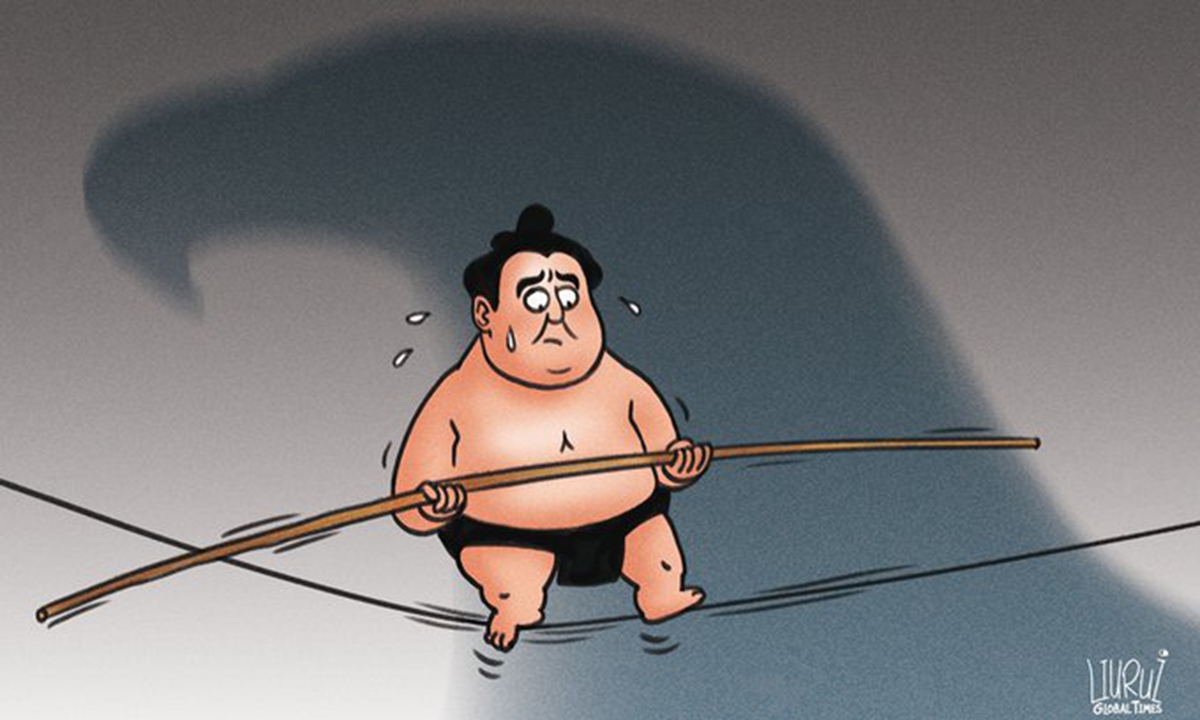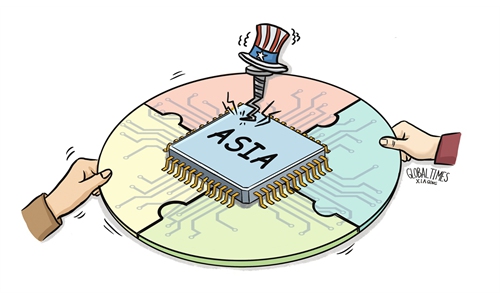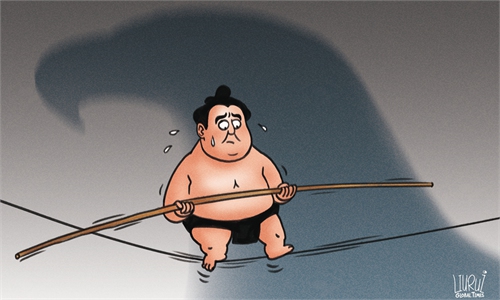
Illustration: Liu Rui/GT
The prospect that Nippon Steel's proposed acquisition of US Steel could be obstructed by the US government on national security grounds highlights Washington's eagerness to assert dominance in the industrial chain. This situation is increasingly likely to lead to clashes of national interests between the US and its allies.Japan's largest business lobby Keidanren said on Friday that it hoped the review of the deal between Nippon Steel and US Steel would be "conducted with the utmost integrity and fairness in accordance with the law," according to Reuters.
The remarks came after a letter from the US government sent to the companies, seen by Reuters, said that the deal would create national security risks because it could hurt the supply of steel needed for critical transportation, construction and agriculture projects.
While Japan, a close ally of the US in Asia, has historically collaborated closely with the US on economic and geopolitical matters, it cannot overlook the fact that Nippon Steel, which aims to enter the US market by acquiring US Steel, is encountering unprecedented obstacles from the US government on national security grounds.
It is somewhat ironic that Japan initially sought to strengthen its economic ties with the US through the deal, only to ultimately find itself unwelcome due to conflicting American interests. This situation reveals Washington's disregard of Japan's interests in favor of its own and underscores Japan's shortsightedness and miscalculations in its trade strategy toward the US.
History has repeatedly shown that when it comes to the protection of its own interests, the US often overlooks those of Japan. A notable example occurred in the 1980s, a period marked by intense competition in the semiconductor industry. During this time, US politicians, motivated by a desire to strengthen the domestic chipmaking sector, implemented measures aimed at curbing Japanese competition. This protective stance was vividly illustrated when Fujitsu's ambitious plan to acquire Fairchild Semiconductor encountered fierce opposition from the US military, highlighting the lengths to which the US government would go to prioritize its own economic interests over those of its Japanese counterparts.
Whether in the past or present, the US has consistently prioritized its strategic objectives, often at the expense of its allies and partnerships. This tendency remains apparent in the current international landscape. Japan's illusionary perception of the US as a steadfast ally has led it to remain aligned with US leadership across various international matters. However, this alignment has not yielded mutual respect or protection of interests; rather, Japan has frequently encountered setbacks caused by its US ally at critical junctures.
The shift in US trade policy, particularly regarding its stance toward Nippon Steel, signifies a broader adjustment in its strategic focus. The US is no longer exclusively committed to the principles of free trade; instead, it is actively pursuing a strategy of economic revitalization. At the heart of this strategy lies the imperative to safeguard US interests, particularly in the context of intensifying global competition, in order to preserve American dominance in various sectors.
However, Japan appears to have not fully comprehended the underlying strategic intentions of the US. It fails to grasp that under contemporary US industrial and trade policies, the US appears more interested in integrating Japan into its own supply chain than allowing Japan to establish an independent one.
In the long run, the US strategy to maintain its global dominance is likely to result in increased conflicts with its allies, as divergent national interests come to the forefront. In this context, Japan's shortsighted approach to global development becomes particularly evident. It has developed an excessive dependence on the US market. This reliance often places Japan in a position of passive acceptance.
If Japan does not recalibrate its strategic approach and find its own course in a timely manner, it risks facing more losses, potentially undermining its own national interests and regional influence. The experience of Japanese companies is also a warning to other allies that are following Washington's strategy.



